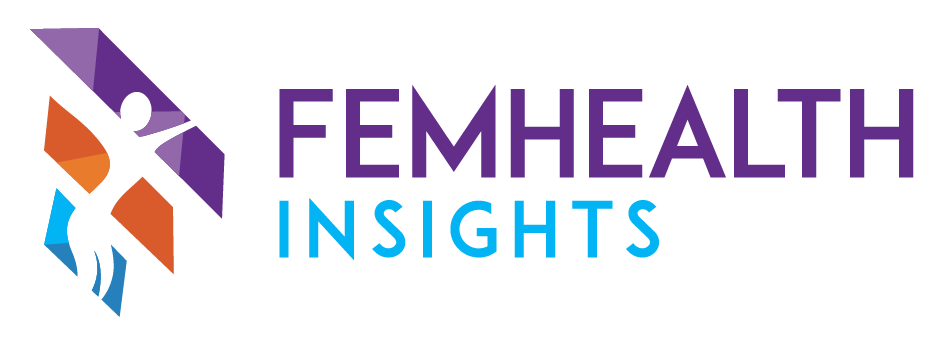Women's Health Innovation Summit: Navigating the Path to Change
Written by Jillian Levovitz, MBA, Chief Executive Officer, FemHealth Insights
Attending the Women's Health Innovation Summit was a remarkable, uplifting experience. The conference brought together a diverse group of individuals united by a shared goal—improving women's health. It is inspiring to see the enormous growth in both attendance and involvement by leading companies over the last five years. The atmosphere was charged with passion, and the conference offered incredible networking opportunities. Yet, as we delved deeper into the event, we couldn't help but notice some surprising gaps in the content presented, and pressing issues that continue to remain unaddressed.
The Need for More Data
One of the prominent themes that emerged from the summit was the critical need for more data. While discussions underscored the extensive need to conduct research in order to understand & improve female health and wellness, it became evident that we also face a significant challenge in translating the research we do have into clinical practice and effective interventions. The standard of care, it seems, is not shifting in accordance with the evolving body of knowledge.
In order to effectively address this challenge, we need to improve both patient and provider education. (Of equal importance, we also need to shift industry incentives - i.e. reimbursement models, but more on this later.) We cannot treat what we don't diagnose and although the medical literature documents a better understanding of disease in women, this information is not being effectively incorporated into clinical care. The pervasive problem of medical gaslighting, where women's health concerns are often dismissed or downplayed, and extreme delays in diagnosis, on average 4 years and at times up to 10 years, highlights the urgency of this issue.
Additionally, we need comprehensive economic data, including prevalence, claims information and impacts on productivity as well as quality of life, to drive informed decision-making in healthcare and make strides in impacting incentives for insurers, employers, providers and patients.
Holistic Care Models: Breaking Down Silos
Throughout the summit, various sessions highlighted the persistent challenges associated with healthcare models that compartmentalize care by specialty. To gain a comprehensive understanding of symptoms and provide suitable treatments, it's necessary to consider all aspects of female health, including hormone fluctuations, menstruation, and menopause. As we chart a path forward, embracing more holistic care models that encompass the entirety of women's health are paramount and the proposal of establishing centers of excellence for women shows promise in advancing research. At the same time though, we believe it is imperative to also consider solutions focused on the scalable implementation of holistic medicine for actual care delivery that won’t compound access to care challenges.
Expanding Access to Care: Slow Adoption
The enormous problem of healthcare deserts for women and the imperative to expand access to care were highlighted throughout the conference and innovative solutions such as pop-up clinics were identified as ways to fill care gaps in underserved communities. Unfortunately though, the slow adoption of digital health solutions - such as continuous blood pressure monitors, which can extend the reach of healthcare providers, enable early detection and result in improved outcomes - was not addressed. This is a problem that again highlights the inherent challenges in translating research to clinical care and the need to change provider & payer incentives.
Stigma: The Unspoken Challenges
A number of panels addressed the long shadow that stigma casts over women's health, affecting their well-being in subtle and not-so-subtle ways. These deeply entrenched perceptions not only influence healthcare delivery and access, but also often hinder women from seeking help or communicating openly about their health concerns. It was observed that we are seeing some improvements in our willingness to speak about menopause in the US, but the conversation also underscored the dire need for more data in order to understand the impact of menopause on productivity and women leaving the workforce. There are of course many other examples of stigma in female health and wellness, but one I found surprisingly absent from discussions was the problem of period poverty, and its devastating impact on female wellness, productivity and quality of life - yet another area where data is sorely lacking.
The Missing Piece: Where Are the Payers?
Perhaps the most glaring omission from the Women's Health Innovation Summit was the absence of payers. Healthcare, like any industry, operates within the constraints of incentives set by regulations and payers. Until reimbursement models align with prevention and outcomes rather than just treatment, care models are unlikely to change significantly. The lack of payer representation on the panels left us wondering how we can change the status quo and enact meaningful progress without their critical perspective and participation.
What’s Next?
It was also interesting that while representatives of Fortune 500 companies examined how things should be different, there was notably less discussion on concrete actions necessary to actually make things different. At FemHealth Insights we believe it will ultimately fall to disruptors and innovators to continue driving the transformation needed to significantly improve female health and wellness. But we also know that partnerships with industry, academia, care providers, policy makers, advocates and payers will be vital to the success of that transformation.
Our thoughts on what is next for FemHealth are here, but we would also love to hear from you on what you believe we need to be doing right now to accelerate research, innovation and investment in female health and wellness.
Join the conversation in Slack!
About the Author:
Jillian Levovitz, MBA, is the Chief Executive Officer at FemHealth Insights. She is an experienced healthcare strategist with experience in many facets of the healthcare industry and the female health and wellness ecosystem. Jillian previously founded and successfully brought to market the novel medical device OcciGuide.


